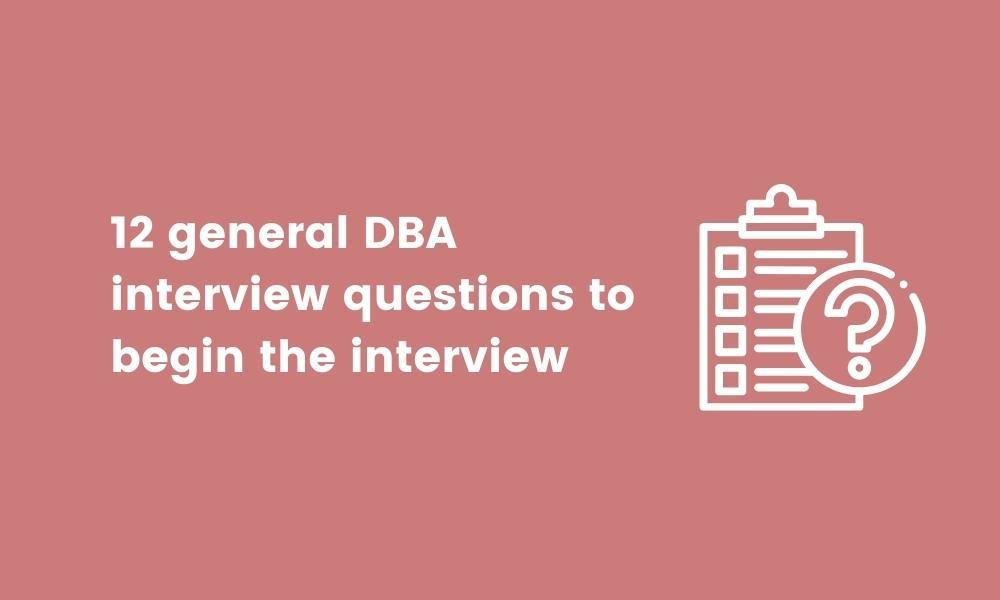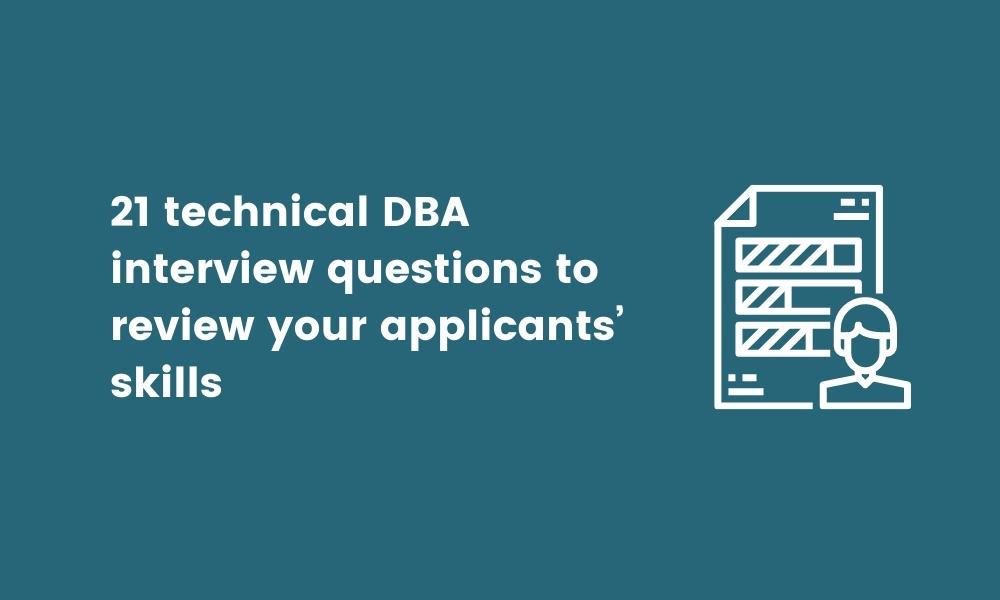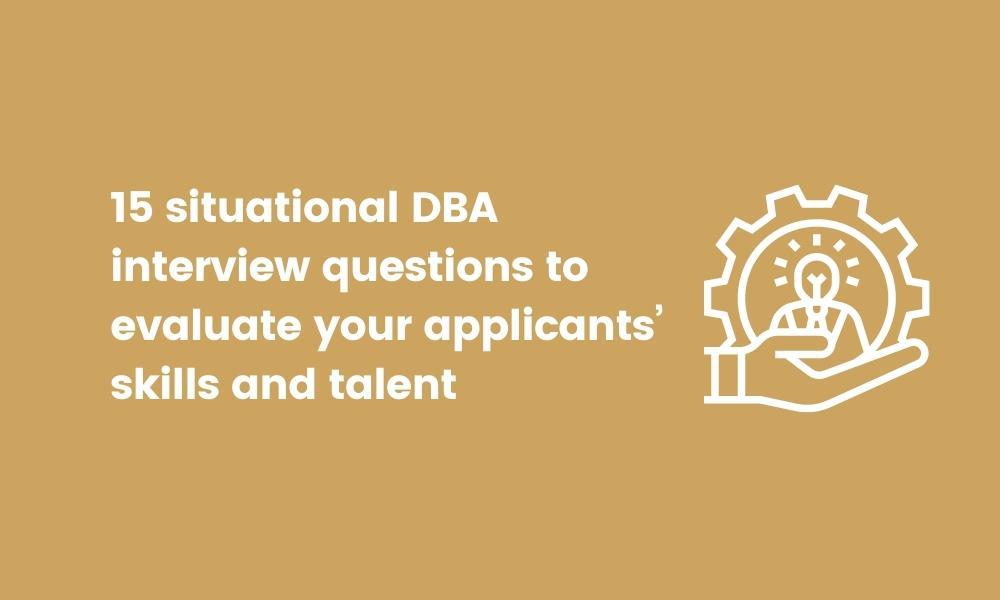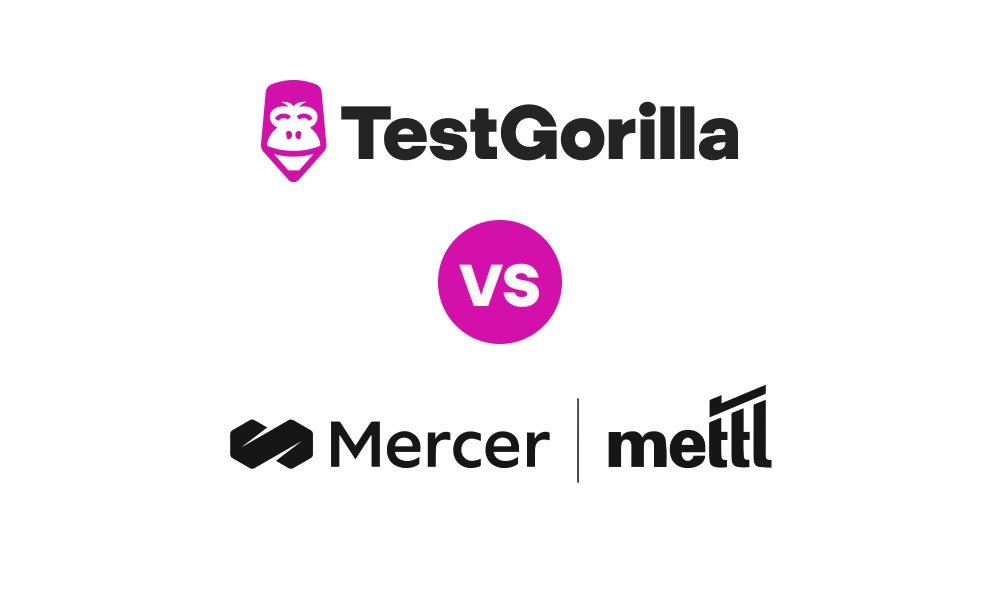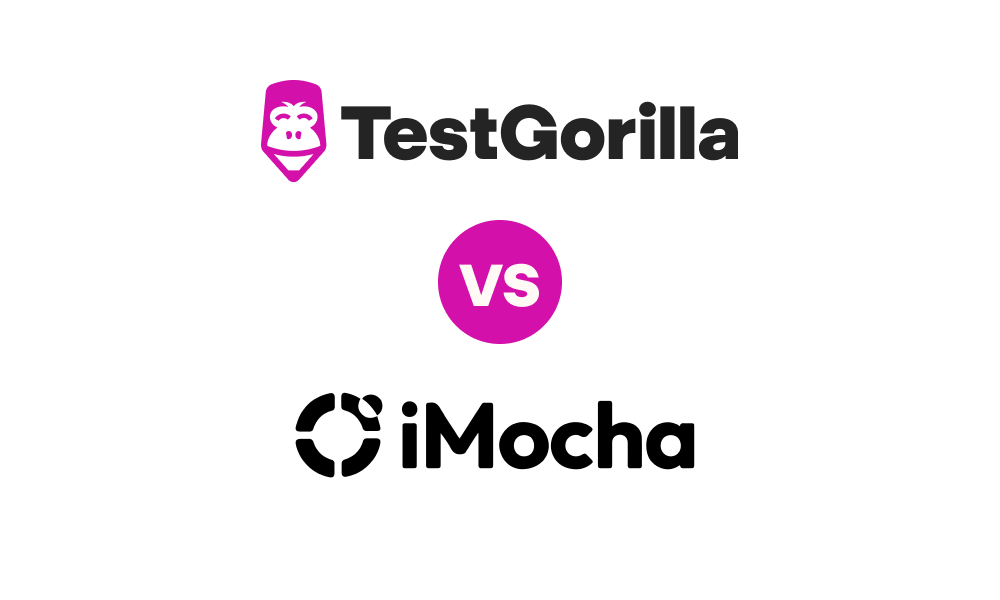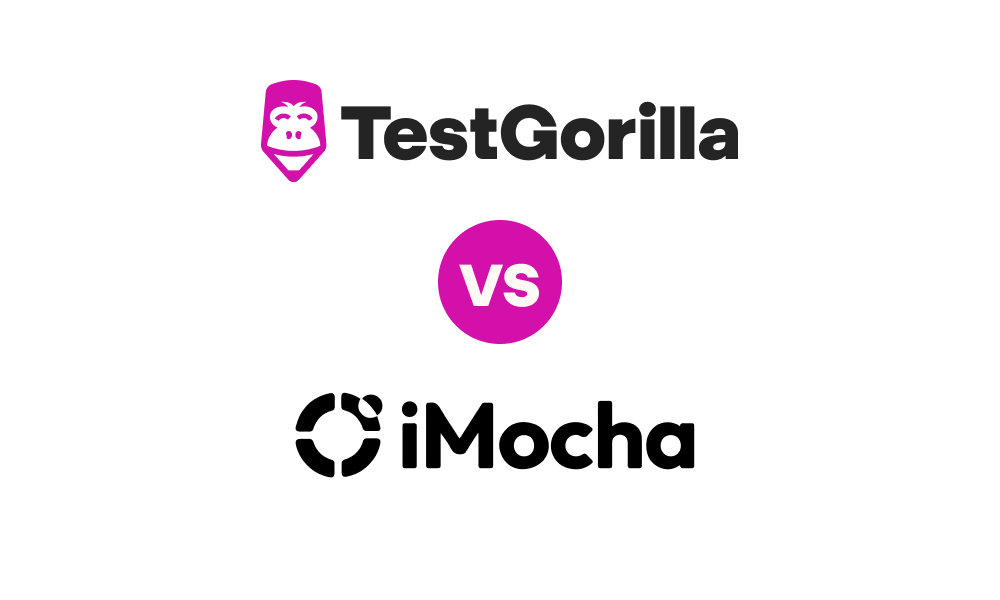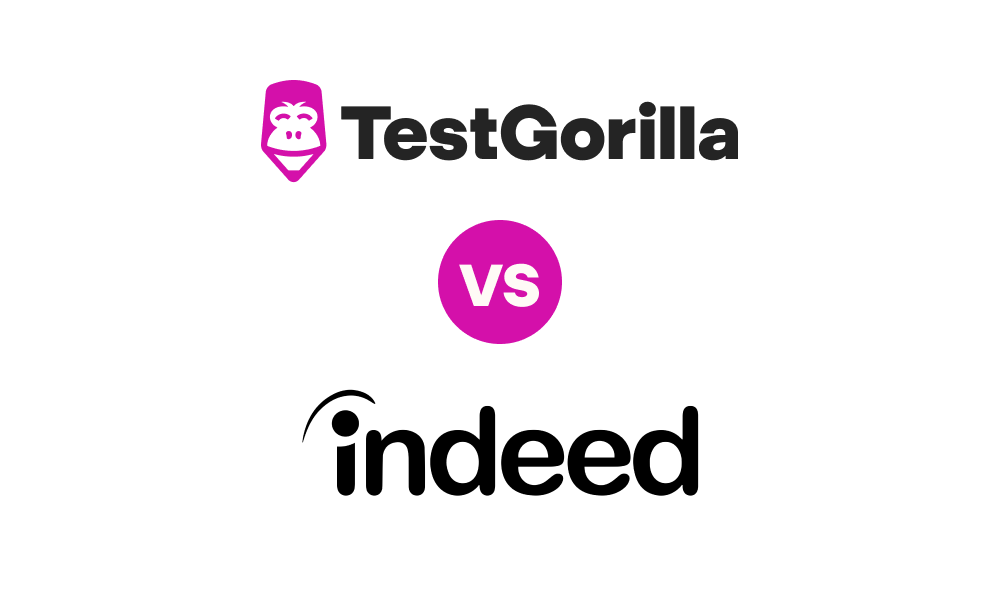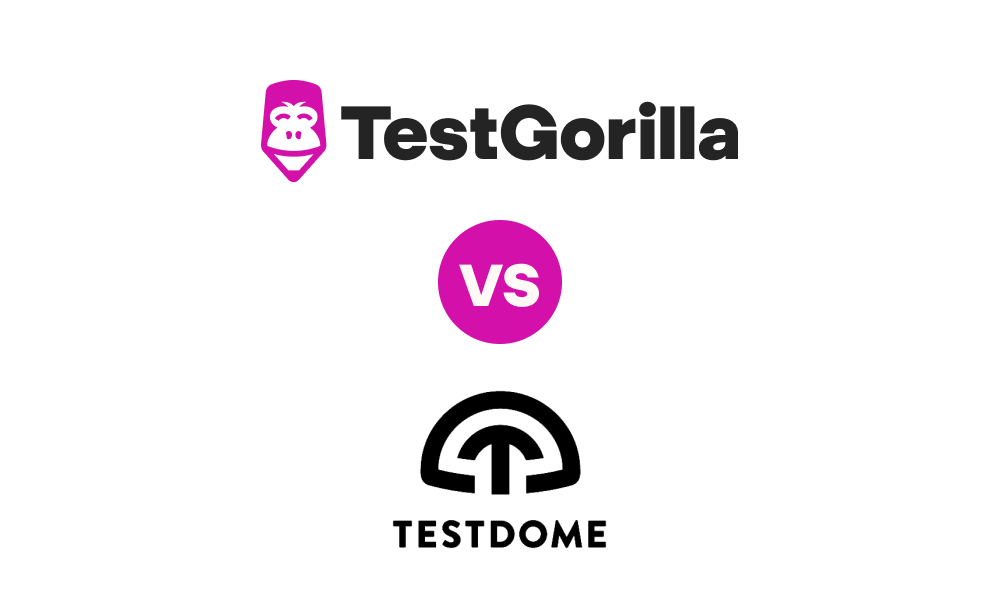Does your next database administrator have the right expertise to become a member of your team? You need the right method to find out.
Sometimes it feels like whichever method you use, be it recruiting internally or externally, it’s tough to find the right talent.
However, with the right approach, finding the right talent can be much simpler; using a combination of hiring tools can help you speed up the whole hiring process and make it more objective.
For the best results, evaluate your applicants’ abilities with skills tests (like our SQL Server Management Studio test) and with structured interviews.
And if you’re looking for the best DBA interview questions, look no further – we have a list of 48 questions. Use these when interviewing applicants and discover your next database administrator without any challenges.
Table of contents
- 12 general DBA interview questions to begin the interview
- 5 general DBA interview questions and answers to review applicants’ responses
- 21 technical DBA interview questions to review your applicants’ skills
- 5 technical DBA interview questions and answers to review responses
- 15 situational DBA interview questions to evaluate your applicants’ skills and talent
- 5 situational DBA interview questions and answers to assess applicants’ skills
- At which point in your recruitment process should you use these DBA interview questions?
- Can the Server Management Studio test replace resume screening?
- Find outstanding talent for your team with the right DBA interview questions
12 general DBA interview questions to begin the interview
These 12 general DBA interview questions are ideal for learning about your applicants’ general database administrator knowledge and experience.
Learn more about your candidates’ careers so far using these questions.
Describe your experience with databases.
Which is your preferred database to work with?
Explain what databases are.
Describe your experience with cloud databases.
Describe your experience with on-premises databases.
Which technical skills do you use most often as a database administrator?
Which soft skills do you use as a database administrator?
Name some best practices you use as a database administrator.
Which factors made you choose a career as a DBA?
What are your best DBA technical skills?
Which DBA skills do you need to improve?
Explain what SQL is.
5 general DBA interview questions and answers to review applicants’ responses
The five general DBA interview questions and answers in this section are perfect for reviewing your applicants’ responses and finding your next database administrator.
Do your applicants have the right general DBA knowledge to join your team? Assess their responses with these answers.
1. Which DBA skills do you need to improve?
Applicants may be trying to improve technical and/or soft skills to enhance their performance and complete projects more easily.
For instance, they may focus on improving their communication or data protection and GDPR knowledge. Check with your applicants to see which methods they are using to improve their skills.
2. What are your best DBA technical skills?
DBA technical skills are fundamental for database administrators, so learning which skills your applicants think are their best will give you a good idea of how prepared they are to take on the open position.
Answers will vary, but you need to be on the lookout for applications who name skills that align with your requirements.
Applicants may have top query language knowledge, such as SQL skills (which you can review with our SQL test). They may be particularly experienced with the installation and configuration of databases. Ask follow-up questions to see how these skills have helped applicants complete projects in the past.
3. Which soft skills do you use as a database administrator?
From attention to detail to problem-solving, soft skills are critical for database administrators. Do your candidates use these skills frequently?
Gauge their skill level by asking them this DBA interview question. You can also assess these skills with an Attention to Detail skills test and a Problem-Solving test before the interview.
4. Which technical skills do you use the most often in your work as a database administrator?
Database security is just one example of a technical skill your candidates are likely to frequently use in their work as database administrators. Other vital skills include DevOps and Git knowledge, which you can test easily with our DevOps test and Git test.
5. Which is your preferred database to work with?
From Oracle to MySQL to PostgreSQL, there are many databases your applicants may prefer.
Are they able to explain why they prefer one over the other? It’s also important to assess whether your applicants’ knowledge of the databases they quote is sufficient.
A great follow-up question is “What do you dislike about your preferred database?”
21 technical DBA interview questions to review your applicants’ skills
The next set of DBA interview questions is related to technical database administrator knowledge and skills. Integrate these 21 questions into your recruitment process to evaluate applicants’ technical abilities in depth.
Explain what a frontend software system is.
Explain what a backend software system is.
Describe the main differences between frontend and backend systems.
Explain what ODBC means.
Explain what DBCC means.
Explain what a join clause is in SQL.
What is Hadoop, and when would you use it?
What is SQL Server Management Studio, and when would you use it?
Explain why database administrators use primary keys.
What is a database server? Name some examples.
Explain what an SQL agent is.
Name five main SQL queries.
Explain what T-SQL means.
Explain what PL/SQL means.
Describe what a navigational database is.
Describe what a relational database is.
Explain what object-oriented databases are.
Describe what document databases are.
Describe what hierarchical databases are.
Explain what network databases are.
Explain what Oracle is.
5 technical DBA interview questions and answers to review responses
We’ve compiled a list of five of the most essential DBA interview questions and answers in this section related to technical knowledge.
Assess your applicants’ responses with these sample answers.
1. Explain what DBCC means.
Skilled database administrators should know that DBCC is an acronym for database consistency checker. They may explain that the DBCC ensures that the database has logical and physical consistency and that administrators can use various DBCC commands to receive stats, planning, and repair details.
2. Explain what a navigational database is.
Do your interviewees understand that a navigational database gives administrators access to data when they define a specific path? Do they know that this database gives access to objects mainly by using references from other objects?
3. Explain what a relational database is.
Do your candidates know that a relational database is a database that recognizes the relationship between stored information items? Can they give an example of a relational database, such as SQL? Can they give examples of its features?
4. Explain what T-SQL means.
Skilled applicants should know that T-SQL means Transact-SQL. They should be able to explain that it’s an extension that administrators use in Microsoft for Structured Query Language and functions best when they use it with the MS SQL server.
Explain what PL/SQL means.
Knowledgeable interviewees should know that PL/SQL means procedural and structured query language. They should know that administrators use this query language with Oracle and that it integrates seamlessly with SQL.
15 situational DBA interview questions to evaluate your applicants’ skills and talent
This set of 15 situational DBA interview questions is ideal for reviewing how your applicants handle database administrator challenges and respond to troubleshooting issues.
Ask your candidates these questions to learn which actions they would take to resolve database-related issues.
Which method would you use to troubleshoot a problem with a database?
How frequently would you carry out tests to keep your data private and secure?
Which methods do you use to work under pressure and complete your duties efficiently?
Do you have experience working without supervision as a DBA?
Have you ever made a mistake as a database administrator? Which steps helped you fix it?
Explain how you would cope with data loss when completing a database migration.
Explain the steps you would take to handle complaints about the slow performance of a database.
Is running tests on live databases advisable? Why or why not?
Are there any methods you use to evaluate whether your database server functions correctly?
Are there any processes that you use to defend databases from external threats?
In which situation would you use a recovery-only restore for databases?
Explain how you contributed to a challenging project you worked on.
Explain which method you use to learn or discover more about new applications.
Explain a method you used to enhance or increase data storage.
In which situation do database administrators use SQL agents?
5 situational DBA interview questions and answers to assess applicants’ skills
The five situational DBA interview questions and answers in this section are ideal for reviewing the responses your applicants provide during an interview. Evaluate their answers using the sample responses below.
1. Which method would you use to troubleshoot database problems?
Ticket checking and proactive monitoring are two methods your applicants may mention when responding to this DBA interview question. Some other steps your applicants may use to troubleshoot databases could be to:
Gather as much information as possible about the issue
Do testing in different environments
Check the error log on the SQL Server
Check the event log
Make a testing plan
Back up the database
2. Are there any processes that you use to defend databases from external threats?
Cyberattacks are becoming more commonplace, and your next database administrator must be able to protect your database from external threats. Some processes your applicants may use to defend your database are to:
Maintain the physical security of the database
Establish an HTTPS proxy server
Deploy protocols for data encryption
Use application and database firewalls
Back up the database regularly
3. Explain the steps you would take to handle complaints about the slow performance of a database.
Using problem-solving skills is a fundamental method for handling complaints about the performance of a database.
Applicants may explain that analyzing tickets is the step one for handling slow databases. They may follow this up by using a memory reconfiguration method and then proceed with a memory upgrade.
4. In which situation do database administrators use SQL agents?
Interviewees who understand SQL databases will know that SQL agents enable administrators to execute administrative tasks or jobs according to a schedule in the SQL server. It’s a job automation service of Microsoft Windows, but administrators can also use it manually.
5. Explain how you would cope with data loss when completing a database migration.
Backups and tests are the starting point for preventing data loss during migration.
Administrators who notice that the data fails to translate may troubleshoot by checking the old databases to see whether there are duplicate files. They may then clean up any extra data to make the migration seamless.
At which point in your recruitment process should you use these DBA interview questions?
The best moment to use these DBA interview questions is after you’ve asked applicants to complete a SQL Server Management Studio test as a part of a larger assessment.
With TestGorilla, you can combine up to five skills tests in a single assessment for an in-depth evaluation of your applicants’ knowledge and skills.
In other words, for a smooth and effective hiring process, consider following this approach:
Write a database administrator job description and post it on the right channels
Receive applications from skilled DBA candidates
Ask your candidates to complete a skills assessment featuring the SQL Server Management Studio test
Check the results of their tests and invite the most promising candidates to an interview
Ask candidates the right DBA interview questions to learn how skilled they are
Use the sample answers to these DBA interview questions to review your applicants’ responses
Make a hiring decision and extend an offer to your best applicant
Can the Server Management Studio test replace resume screening?
Here’s the answer you’ve been hoping for: Our Server Management Studio test can absolutely replace resume screening.
Skills testing is the best option for an unbiased, accurate, data-driven recruitment process. You can simply skip the lengthy resume screening process by replacing it with skills tests to review your database administrators’ knowledge and abilities. For this, you simply need a reliable testing platform like TestGorilla.
Find outstanding talent for your team with the right DBA interview questions
We know that finding database administrators for your team can be like searching for purple squirrels.
Still, now you’ve got plenty of DBA interview questions to help you easily interview your applicants. And remember: Using our SQL Server Management Studio test can quickly help you identify the most capable database administrators from your talent pool.
Find a superstar database administrator with the help of skills tests and the right set of DBA interview questions. Sign up for TestGorilla today.
Related posts
Hire the best candidates with TestGorilla
Create pre-employment assessments in minutes to screen candidates, save time, and hire the best talent.
Latest posts
The best advice in pre-employment testing, in your inbox.
No spam. Unsubscribe at any time.

Hire the best. No bias. No stress.
Our screening tests identify the best candidates and make your hiring decisions faster, easier, and bias-free.
Free resources
This checklist covers key features you should look for when choosing a skills testing platform
This resource will help you develop an onboarding checklist for new hires.
How to assess your candidates' attention to detail.
Learn how to get human resources certified through HRCI or SHRM.
Learn how you can improve the level of talent at your company.
Learn how CapitalT reduced hiring bias with online skills assessments.
Learn how to make the resume process more efficient and more effective.
Improve your hiring strategy with these 7 critical recruitment metrics.
Learn how Sukhi decreased time spent reviewing resumes by 83%!
Hire more efficiently with these hacks that 99% of recruiters aren't using.
Make a business case for diversity and inclusion initiatives with this data.

